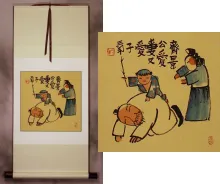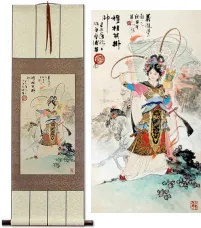Family Chinese & Japanese Calligraphy Wall Scrolls
You can customize a beautiful family wall scroll here.
Start by clicking on the button next to your favorite family title below...
This in-stock artwork might be what you are looking for, and ships right away...
Gallery Price: $61.00
Your Price: $33.88
Gallery Price: $61.00
Your Price: $33.88
Gallery Price: $72.00
Your Price: $39.88
Gallery Price: $60.00
Your Price: $39.88
Gallery Price: $108.00
Your Price: $59.88









